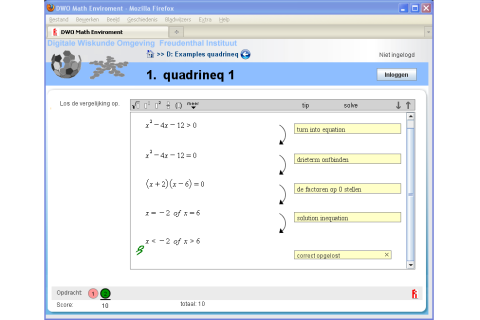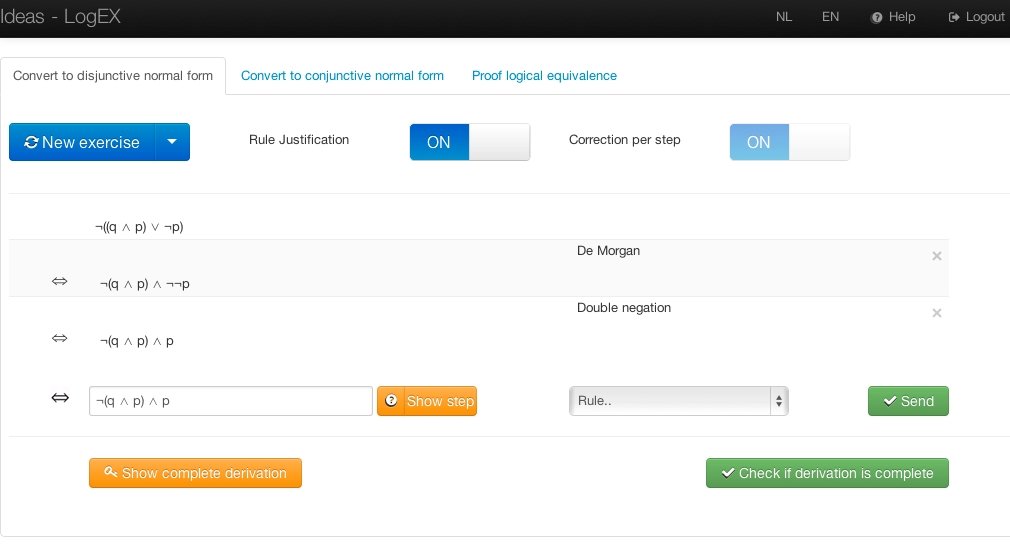The Ideas project
Johan Jeuring, Bastiaan Heeren, and Alex Gerdes

Technology for learning is developing at an enormous speed: MOOCs, serious games, and blended learning, have recently been introduced, and are already now widely used. Using this technology, students can ideally work from any place, at any time, and can get immediate feedback on their work. However, to give immediate feedback, tasks are sometimes simplified, for example to multiple-choice tests, or have to be corrected by peers because automatic assessment or help is impossible. Can we improve learning technology by developing techniques that help with automatically calculating feedback and feed forward for complicated tasks in domains such as mathematics, programming, logic, or even communication skills? The Ideas project aims to deliver such technology

The goal of the Ideas project is to develop technology to help students solving interactive tasks in learning environments, simulations, and serious games. An important component of the Ideas project is a framework for developing domain reasoners that give intelligent feedback. A domain reasoner is built on top of rewriting rules and strategies, and delivers several feedback services. Using Ideas, we have developed domain reasoners for solving algebra problems such as quadratic equations, but also for logic, programming, and communication skills.
Support
The research has been funded by EU FP6, EU H2020, the Surf Foundation, and the Utrecht University Teaching Fund.
Downloads
| Alex Gerdes, Bastiaan Heeren, Johan Jeuring, and Thomas van Binsbergen: Ask-Elle: an adaptable programming tutor for Haskell giving automated feedback. Journal of Artificial Intelligence in Education, 2016. |
| Bastiaan Heeren and Johan Jeuring: Feedback services for stepwise exercises. Science of Computer Programming, volume 88, 110 - 129, 2014. |
| Bastiaan Heeren, Johan Jeuring, and Alex Gerdes: Specifying rewrite strategies for interactive exercises. In Mathematics in Computer Science 3(3), 349-370, 2010. |
- Digital Math Environment from the Freudenthal Institute, Utrecht University
- Math-Bridge from the DFKI, Saarbrücken
- Communicate!, a serious game for communication skills from Utrecht University (more details)
- Logex, a learning environment for logic from the Open University The Netherlands (conference video)

